Search
Search Results
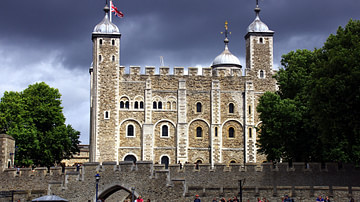
Image
The White Tower, the Tower of London
The White Tower of the Tower of London castle, first built c. 1077-1110 CE by William the Conqueror.

Image
Toilet, Tower of London
A typical medieval toilet or garderobe. Tower of London. 11th century CE.
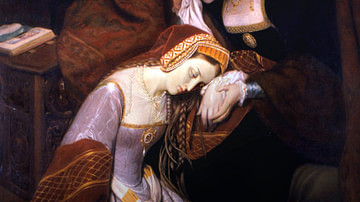
Image
Anne Boleyn in the Tower of London
A 19th century CE painting by Edouard Cibot showing Anne Boleyn (c. 1501-1536 CE), the second wife of Henry VIII of England (r. 1509-1547 CE) prior to her execution in 1536 CE in the Tower of London. (Musée Rolin, Autun, Burgundy, France)
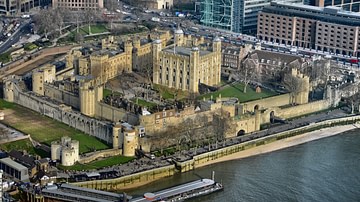
Image
Tower of London Aerial View
An aerial view of the Tower of London castle, first built c. 1077-1110 CE by William the Conqueror. The castle was then extended and modified over the subsequent centuries.
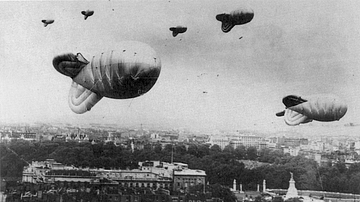
Image
Barrage Balloons over London
A photograph showing barrage balloons over London. The balloons were tethered on wires and deterred low-flying aircraft which could become entangled in them. Balloons were used to protect cities and important sites during the Second World...

Image
Children Being Evacuated from London
A photograph showing children being evacuated from the East End of London during the Second World War (1939-45). (Imperial War Museums)
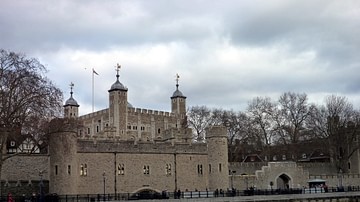
Image
St, Thomas' Tower, Tower of London
St. Thomas' Tower and the Traitor's Gate as seen from the Thames. St. Thomas' Tower was added to the Tower of London by Edward I (r. 1272-1307 CE), its construction lasted from 1275 - 1279.
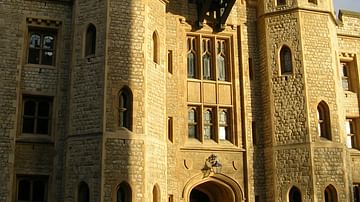
Image
Waterloo Block, Tower of London.
The Waterloo Block entrance, Tower of London, England.

Image
Volunteers Distributing Tea during the London Blitz
A photograph showing tea being distributed by volunteers to air raid shelters during the London Blitz of 1940-1. John Keble Church kitchen. (Imperial War Museums)
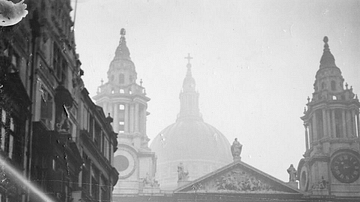
Image
Firefighters, London Blitz
A photograph of firemen fighting a blaze during the London Blitz (1940-1). St. Paul's Cathedral can be seen in the background. (Imperial War Museums)